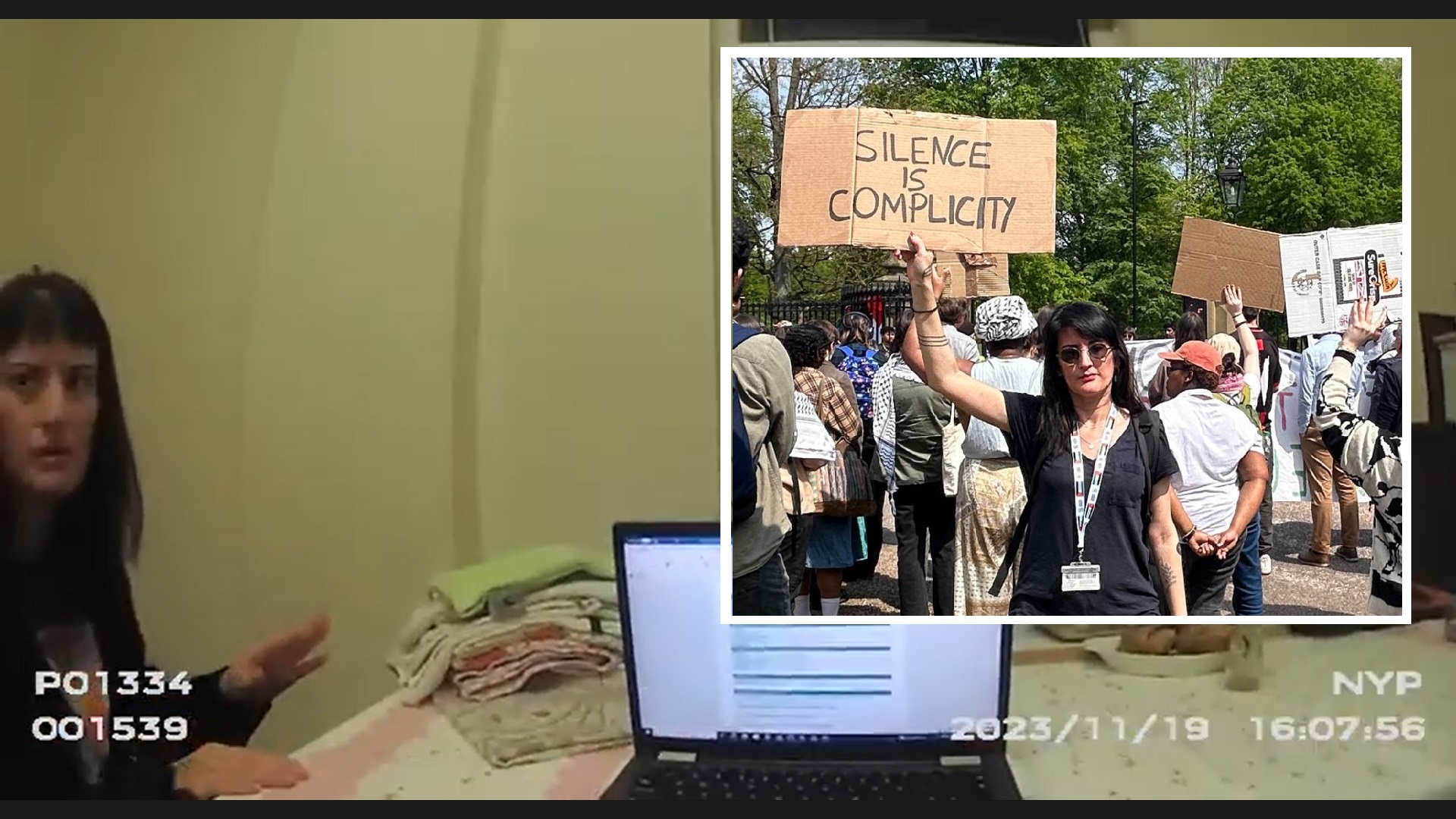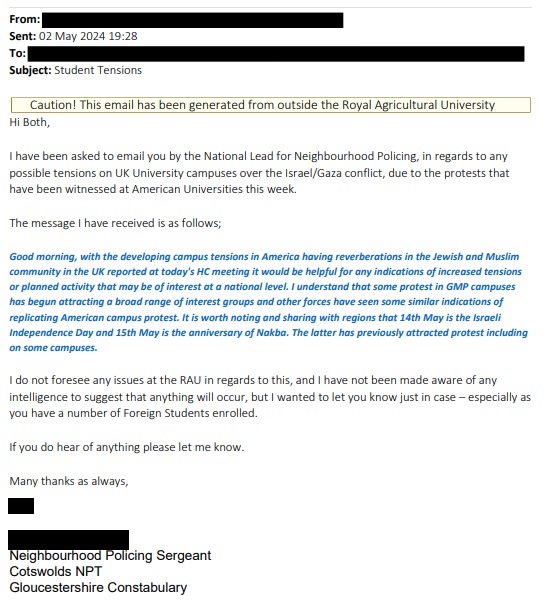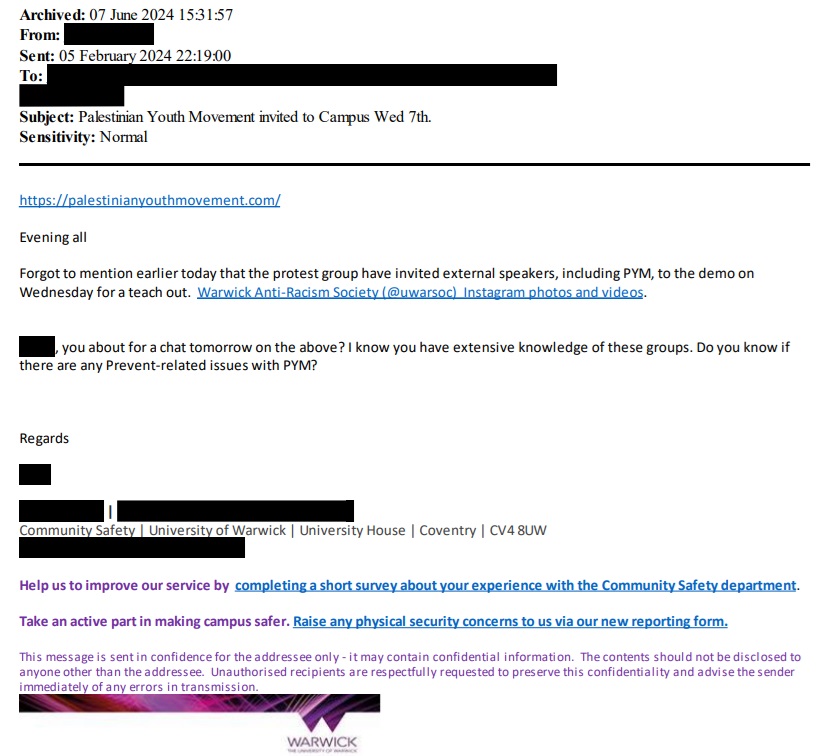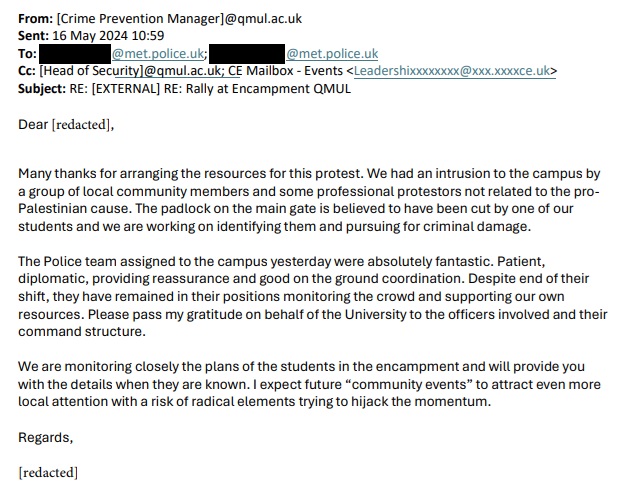Revealed: The universities offering police intel on student Gaza protesters
Published on 02 July 2024
York student Tugba Iyigun was visited by police at her home after tweeting the phrase 'From the river to the sea' while a rally on campus last November. Credit: Tugba Iyigun
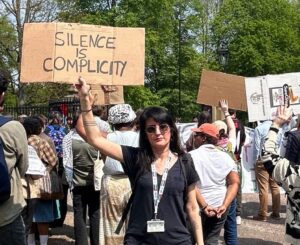
Reporters submitted FoI requests to more than 140 UK universities for copies of email exchanges with police
Reports Aaron Walawalkar and Harriet Clugston for Liberty Investigates and Josh Milton for Metro.
